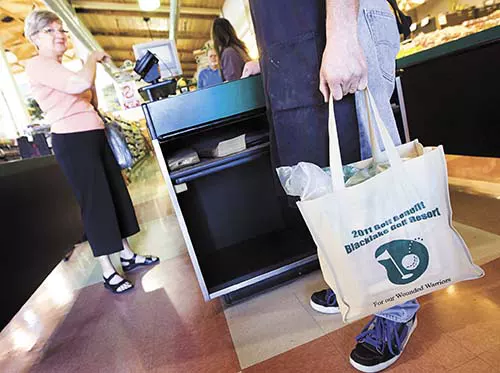The Negative Consequences of Honolulu’s Plastic Bag Ban On The Environment

Consumers Now Get Thicker Plastic Bags With Honolulu’s Bag Ban
Just a couple weeks into their single-use plastic bag ban folks in Honolulu noticed something wasn’t right – some stores were still distributing plastic bags. Honolulu’s bag ban technically prohibits stores from handing out plastic bags that are thinner than 2.25 mils. The plastic bags being handed out now are in fact thicker, so they are allowed under the ban. These thicker bags are billed as reusable since they are durable.
How Honolulu’s Bag Ban Came to Be
There had been much talk and much work around banning disposable plastic bags in Honolulu, and the ban passed in a unanimous vote in September 2014 with the plan to roll it out on July 1, 2015.
When these bag ban proposals were discussed, many retailers were concerned about a flat-out ban on all disposable bags and the impact such a measure would have on business.
In an effort to work with businesses and create a ban that would work for everyone, officials allowed the thickness requirement. Now many residents, including the Mayor, Kirk Caldwell, feel like allowing thicker plastic bags was a mistake.
Impact of Thicker Plastic Bags On Environment
Unfortunately Honolulu finds themselves in the same position as Austin, as we explained in an earlier post. The thicker plastic bags tend to be re-used a few times, but they feature the same host of problems as the thinner bags. The recycling rate for these thicker plastic bags are still low, and if they end up in a landfill or as litter it simply takes them longer to break apart into smaller pieces since they are thicker.
Since the bags allowed under the ban are thicker, that means more resources are used in the manufacturing process and that drives up the cost. When retailers purchase these thicker and more expensive bags that cost is passed along to the customers. The advantage of these thicker plastic bags being re-used a couple times is just not worth all of the harm, financial expense and environmental cost for which these bags are responsible.
What Does Honolulu Do Now?
Disposable bag bans need to be tailored to the city or county they cover. What works for one municipality may not work for another area, but as we’ve learned now from both Austin, Texas and Honolulu, Hawaii officials should consider whether to include the thickness restrictions when creating a bag ban.
The thicker plastic bags are still plastic bags and they still pose all of the same risks as the thinner bags and then some. In the couple of weeks since Honolulu’s bag ban has been enacted, it has shown some positive results and while Mayor Caldwell wants to make things right and ban all plastic bags from Honolulu, he wants to take the time to make sure the fine-print lives up to the true spirit of the ban. This measured approach allows the ban in place to continue doing the good work it is achieving, but also will give officials the opportunity to fine-tune the measure to truly fit Honolulu.
